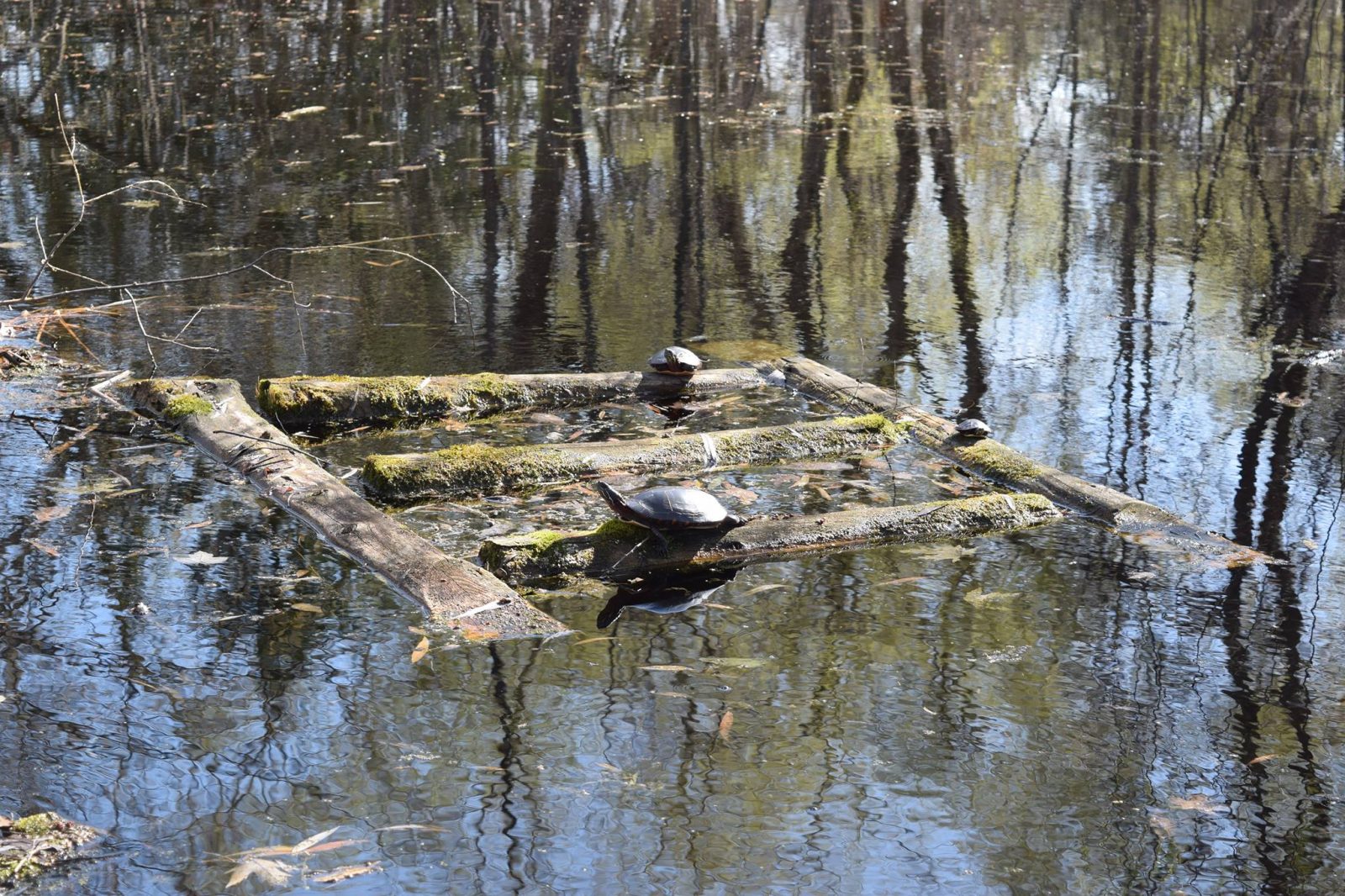To Those Concerned:
At the beginning of our most recent working session, the members of the Wildflower Volunteer Group at the Marsh were notified of your decision to terminate your agreement with the Cooper Marsh Conservators. We have been working with the Conservators on the basis of an enthusiastic collaboration aimed at enhancing the biodiversity of the Marsh area and the properties of local landowners. I have acted as the informal leader of the group. I was shocked, deeply saddened – angered even – when learning of your decision. Later, while searching for a justifiable reason for your action, I found the announcement of the termination on your website, I was dumbfounded. It appears that your complaint with the Conservators was that they mustered whatever means they could to defend the eastern margin of the Marsh from the seriously negative effects of a proposed development!
I was also struck by the insensitivity of the text concerning both the persons and the extraordinary contributions of so many hard working volunteers.
The current actions of the Conservators have not been, as you contend, a “change of focus” but rather a consistent and logical application of their primary mandate as stewards of the Marsh to preserve and protect the Marsh and its inhabitants from impending danger, and to educate the public about the workings of the Marsh as an ecologically significant site. But you see this as the Conservators having “been involved in political activities which are inconsistent with the RRCA’s statutory mandate. In general, no conservation authority in Ontario may, directly or indirectly, engage in political activities regarding development projects.” The agreement of the Conservators with the RRCA included this prohibition, but they obviously did not foresee the current danger to the Marsh nor understand the implications of the restriction in the same way. This, and your interpretation of what is encompassed by the notion of “political activities,” is the crux of the problem. It is the reason, moreover, for the Conservators’ declaration that they found themselves in a conflict between their express mandate to protect and maintain the Marsh and the prohibition to engage in political activity.
From what I can understand from reading your website, the RRCA itself is also subject to this conflict of interests and has chosen, rather than recognize it and proceed to a legal resolution in order to extricate itself, to shift the blame for a misconceived mandate onto the Conservators. As recent debates concerning indigenous land rights clearly demonstrate, there is a gap between the letter of the law and the practice of justice, a gap that is closed over time by the process of re- evaluation with regard to societal change and the establishment of legal precedents. Any serious educator teaching current environmental issues – or for that matter, health concerns – will acknowledge that in today’s social climate, the distinction between committed, practical education and political action is an invisible line, and that it wavers according to the demands of circumstance. Some, indeed, would say that there is, and cannot be, any real distinction at all, that education is inherently political.
Justice, thought of as a right shared by all citizens, takes precedence here, in my view, over the socially outdated letter of the law, which eventually becomes repressive and leads to overt dissent. As far as I can see the RRCA, instead of blaming, should be loyally defending the actions of the Conservators. In the posting of The Township of South Stormont’s Strategic Plan – relevant here because its Mayor is also the Chair of the RRCA – we read among the Guiding Principles that it wishes to be collaborative, considerate, welcoming and safe, as well as to “engage in informed decision making.” The plan elaborates this later point: “Our Township will ground decisions in evidence, consider the options and consequences, listen, and confidently execute decisions that support the community’s best interest.” In responding to this invitation, how can the Conservators be accused of stepping out of line by engaging in “political action?” It was urgent that correct information be shared and analyzed by experts, and that critical questions needed to be asked. One question that comes to mind is whether there was a consensus among experts concerning the environmental assessment of the damage that would be done by the project. Another is whether the Mohawks of Akwesasne, on whose traditional, never ceded territory, the proposed “development” would take place, were duly consulted. Is it not possible that “protest” is simply a matter of shouting loudly because the right people are obviously not listening?
The Conservators perceived a real, potentially devastating, threat to a critical portion of the Marsh and its wildlife, including rare, endangered birds such as the Least Bittern as well as the Blanding and other turtle species at risk. They responded with an information and education campaign, hoping, not to unseat current local authorities, but to clarify with them the issue with which both parties were – and still are – dealing. Informing, providing supplementary information, discerning and
explaining the weaknesses in a proposal of serious import, need not be construed as lobbying or political pressure, but can on the contrary, be easily understood as a matter of pursuing the education and protection included in the Conservators and the RRCA’s founding mandates.
Insensitive to the depth of the volunteers commitment to the preservation and enhancement of the Marsh, as well as their sustained contribution of work and knowledge, your decision has hurt and deeply offended many people who have been acting as stewards of the Marsh since long before the formal agreement made with the RRCA in 2017. To make matters worse, many of the volunteers struck by your decision are no longer young, and have conscientiously and enthusiastically dedicated many of
their remaining precious hours sharing their professional expertise, acquired knowledge, and knowhow to the betterment of the marsh. In my recent exchanges with the Conservators, I have sensed a feeling of hopelessness and even fear to speak out. That is perhaps the unkindest cut of all.
The post on your website conveys little real feeling that you have actually understood the massive debt the RRCA owes to its volunteer groups. You recognize (as you must) that the “CMC has assisted the RRCA with fundraising, educational and recreational activities at the Cooper Marsh Conservation Area and Visitors Centre since 1997.” This rote listing, vague and incomplete, in no way conveys the extent and indeed the indispensability of the Conservator’s contribution to the stewardship of the Marsh. It also studiously omits mention of the RRCA’s – and consequently the Conservator’s – role as protector of the Marsh.
There are three levels to this problem that require remedy. The first touches upon the intrinsic contradiction in the mandate of the Province’s Conservation Authorities between their duty of stewardship, which necessarily includes environmental protection and education, and the prohibition to take part in actions deemed “political” because contrary to the wishes of developers. That, I am aware, will require a serious and sustained collaborative effort. The second, arising from the problem at hand,
is to resolve publicly the conflict between the RRCA and the Cooper Marsh Conservators and the perceived disrespect of volunteer work and in-put of knowledge. This must be done with complete transparency, especially with regard to the decision making process and documentation of how your website posting says “the RRCA and the CMC [the Conservators] have worked behind the scenes to try to save their important relationship.” What the “great lengths” to which the RRCA went to accomplish this must become a public element of reconciliation. The third level concerns the Wildflower Volunteer Group. Unless the prohibition concerning so-called political action is lifted, it is difficult to see how we can continue to work towards the preservation of our region’s natural heritage under the present RRCA’s management. We will be meeting soon to discuss our options.
Philip Fry, PhD (Sorbonne), LScR (Louvain), Cert. (ÉPHÉ, Paris)
Informal leader of the Cooper Marsh Wildflower Group



